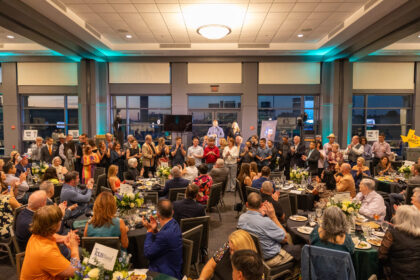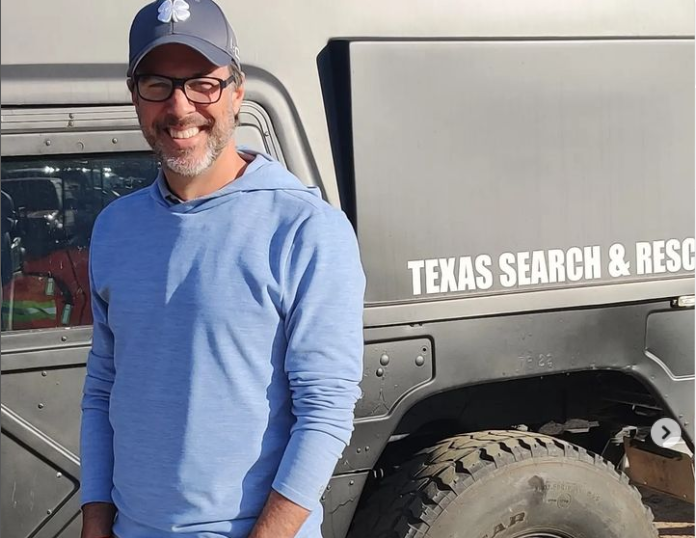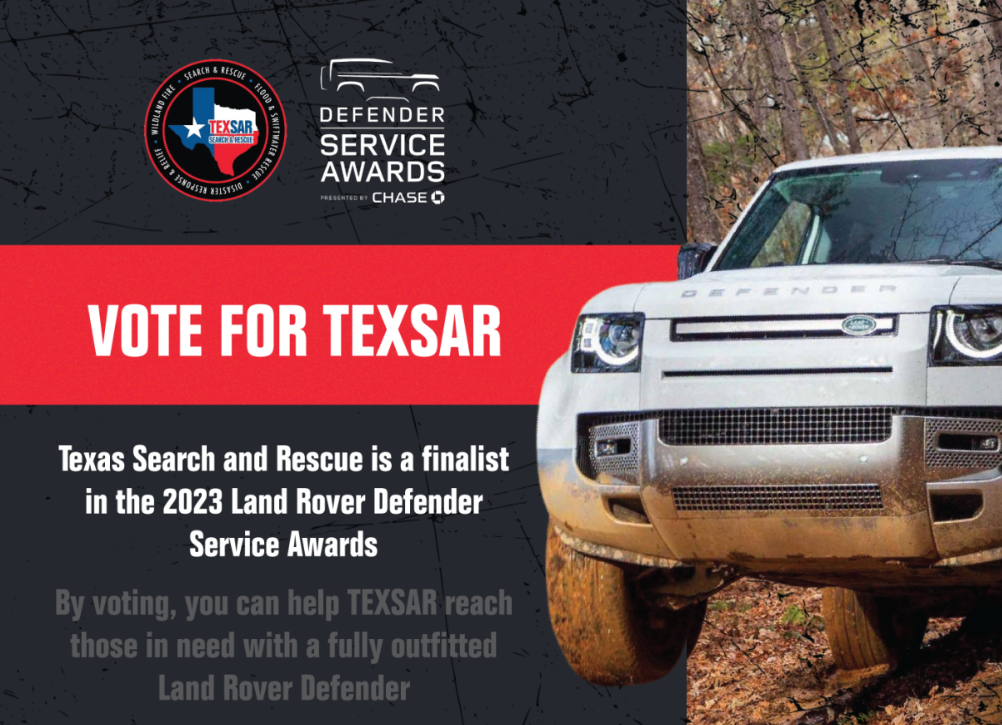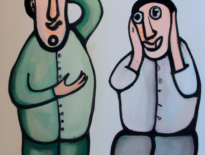
My world is almost entirely online; from my written works to the majority of MediaTech Ventures‘ focus, the internet changed everything about our world but in doing that, created confusion about what it means to be an entrepreneur, how we define a startup, and wherein we find the heroes of the modern era.
In my work throughout the Texas Startup ecosystem, I’m met with a far greater diversity of entrepreneurs solving problems, than was the case when I was in Silicon Valley. That’s not a criticism nor explicit statement about California’s tech scene; it’s just my setting the stage to give you some perspective on entrepreneurship, that there, I was smack in the middle of the emergence of The Information Age and how tech was changing the world. It was in my move to Texas that I heard these harsh, erroneous distinctions, that “tech” was this other, tech was what we don’t like, or that startups are [only] in tech.
The reason for that distinction, I imagine, is probably something most throughout the world are familiar with, that it feels like tech continues to disrupt the way things have always worked well; that, rather than creating new opportunities and solving problems in every sector of our economy, most are fixated on a fear that tech is threat. “Tech” as a bad word is isolated from everything else as though it is something *else.*
Thus, it was arriving in Texas, the epicenter of the largest segments of most of our traditional economies, that I started to meet the modern day heroes in agriculture, education, transportation, clothing, and even the food and beverage industries. What caused Texas to boom, as an economy of late, is not affordability nor tech companies moving here but the fact that passionate entrepreneurs throughout our economy caught on quickly to the fact that internet changed everything – that we can leverage that and evolve other industries (known as a Digital Transformation) or we can continue to think of tech as a threat, causing everything we do to get left behind.
Article Highlights
Startups are Not Only in “Tech”
Or rather, appreciate that technology is not merely semiconductors and code, “the application of scientific knowledge for practical purposes.”
I’m a huge fan of the distinction of a startup by way of Steve Blank’s definition, “an organization designed to search for a repeatable and scalable business model” because it illuminates how the work that entrepreneurs do, creating new opportunities from solutions, helps distinguish that applying knowledge for practical purposes establishes these characteristics of what I consider modern day heroes:
- Experienced in some meaningful way
- Applying that experience through risk undertaken to solve problems
- Developing organizations that impact in repeatable and scalable ways
These are the people who change the world for the better.
The Modern Day Hero Notion Isn’t Mine
As is usually the case when I write, my attention and focus is sparked by a persistent question or an exciting idea I’m motivated to explore with you.
This was sparked by Land Rover. Which no, has nothing directly to do with Texas, or startups, but caught my attention thanks to some friends in Austin doing incredible work through TEXSAR, Texas Search and Rescue.
The concept of the Land Rover was born in the late 1940s when Maurice Wilks, the chief designer at the Rover Company, and his brother Spencer Wilks, the managing director, saw the need for a versatile, all-terrain vehicle. Inspired by the surplus military Jeeps left in Europe after World War II, the first Land Rover launched at the Amsterdam Motor Show in 1948 – it was initially designed as a utilitarian vehicle, primarily for agricultural and industrial purposes; precisely what was needed to address the problems in post-war Europe, taking a risk on a surplus of new technology, putting their experiences to work to create an impactful organization both repeatable and scalable.
A startup born of an era well before the personal computer, smartphone, or internet. Then modern heroes that helped change the world for the better.
In 1983, Land Rover introduced the Defender and it’s therein that my story ties together.
“Through their compassionate acts of service and integrity, it is with great honor that we recognize these organizations that embody the heroism of Defender. The Defender ethos is centered around achieving the impossible with a focus on giving back, and these organizations are nothing short of that, Charlotte Blank, US Chief Marketing Officer, Jaguar Land Rover North America. “We are proud to celebrate their extraordinary achievements and dedication to their missions.”
“These Organizations”
TEXSAR, Texas Search & Rescue, Recognized by Land Rover
Our world, despite satellites, smartphones, and on demand communication and information, is still facing a massive problem in merely taking care of one another in our most desperate times of need.
TEXSAR, if I can beg of them some liberty in our use of words, is a startup that I’ve come to greatly admire by way of my time in Texas. A group of incredible entrepreneurs, who turned to their experiences in search and rescue, took the risks necessary to start an organization that tackles just such a problem, in a scalable, repeatable, and meaningful way.
TEXSAR announced this month that they have been recognized by Land Rover in their Defender Service Awards. In pursuit of its mission, TEXSAR has a long-standing commitment to serving the Texas community through its specialized search and rescue operations. With a team of highly trained and dedicated volunteers, the organization responds to a wide range of emergencies, including missing persons, natural disasters, and wilderness rescue missions.
“I can recall a deployment at the coast where assets were having a hard time reaching the scene with a boat, and I dove in and swam a few hundred yards to get to and assist the victims. This is ultimately what TEXSAR is about. Reaching people in need when others can’t… it’s who we are, it’s in our blood. Just as Land Rover was born out of necessity after World War II when the British automaker, then Rover, faced the economic challenges of post-war Europe and a surplus of military-grade aluminum, TEXSAR was born out of a need to serve the exceptional people of Texas in times of environmental and personal crisis. We could not be more honored than we already are simply to be among such great company throughout these organizations in Search and Rescue.”
– TEXSAR President and CEO, Justin McInnis
That photo above (not me, the other photo) is the crowd of people who gathered just a few days ago to celebrate the impact that this organization has had on people’s lives and to acknowledge the hundreds of volunteers who train, volunteer, and work tireless to find missing children, aid authorities in disaster recovery, and arrive first when the call goes out that people need help.
That’s a mission driven venture. That’s the passion necessary in entrepreneurship that enables founders to persevere, pivot, and find a way to make something better work. TEXSAR deploys at the request of law enforcement, fire departments, and emergency management agencies, providing specialized services such as ground search and rescue; flood and swiftwater rescue; K9 search, rescue, and recovery; disaster relief services; wildland fire; aerial search; UAV support; and dive team operations.
As my private equity, venture capital, and startup world talks of Social Impact and asks how we can do more to make a difference, I’m keenly reminded that the heroes making such differences already exist and that there is so much more we can all do to help one another.
Through the awards, throughout the rest of September until October 4th, TEXSAR will participate in an online voting contest against four other Search and Rescue groups from throughout the country for the title and the winner of that title, will find Land Rover rising to the occasion to help more, with a Defender ready to deploy. And as if Texas was already the right place for this innovation and impact in the U.S., the winners from throughout the United States will be announced at a celebration banquet in November at Iron Horse Ranch in Somerville, Texas.
So in this case, in this post, I have an ask. Click here, now, and select TEXSAR to throw your support behind their work. Yes, you can donate, explore volunteering with TEXSAR, or even just do something as simple as sharing this post (please do that), but what I want to ask you to do is kick in a vote, so that TEXSAR’s call to action comes to life, “Texans helping Texans” with your support recognizing the work they’re doing.
Modern day heroes, not in disruption nor tech for the sake of tech but right in our backyard, solving problems through organizations that make the world a better place.





Well said, Paul O’Brien ! Having been blessed to be a part of #TEXSAR for over six years, the team’s mission of ‘Texans Helping Texans’ resonates with me in so many ways. This past Saturday’s event was another chapter as the organization grows steadily to being able to support more missions with more members!
That service mindset goes so far in building strong coalitions of support and the networks that you need to get by in our world as it gets more and more complicated and nuanced, that’s for sure!
My husband Chris Connolly used to search with TEXSAR! Kept a pack in his car at all times just in case
This is phenomenal and well-written as always! So excited about what TEXSAR: Texas Search and Rescue is doing for Texas.
Well said! Paul O’Brien, entrepreneurship can be catalysts for positive change, not just in business but in the lives of people facing desperate situations.
Can’t think of a better reason to take a minute and vote to help this organization win a vehicle they’ll use to save lives.